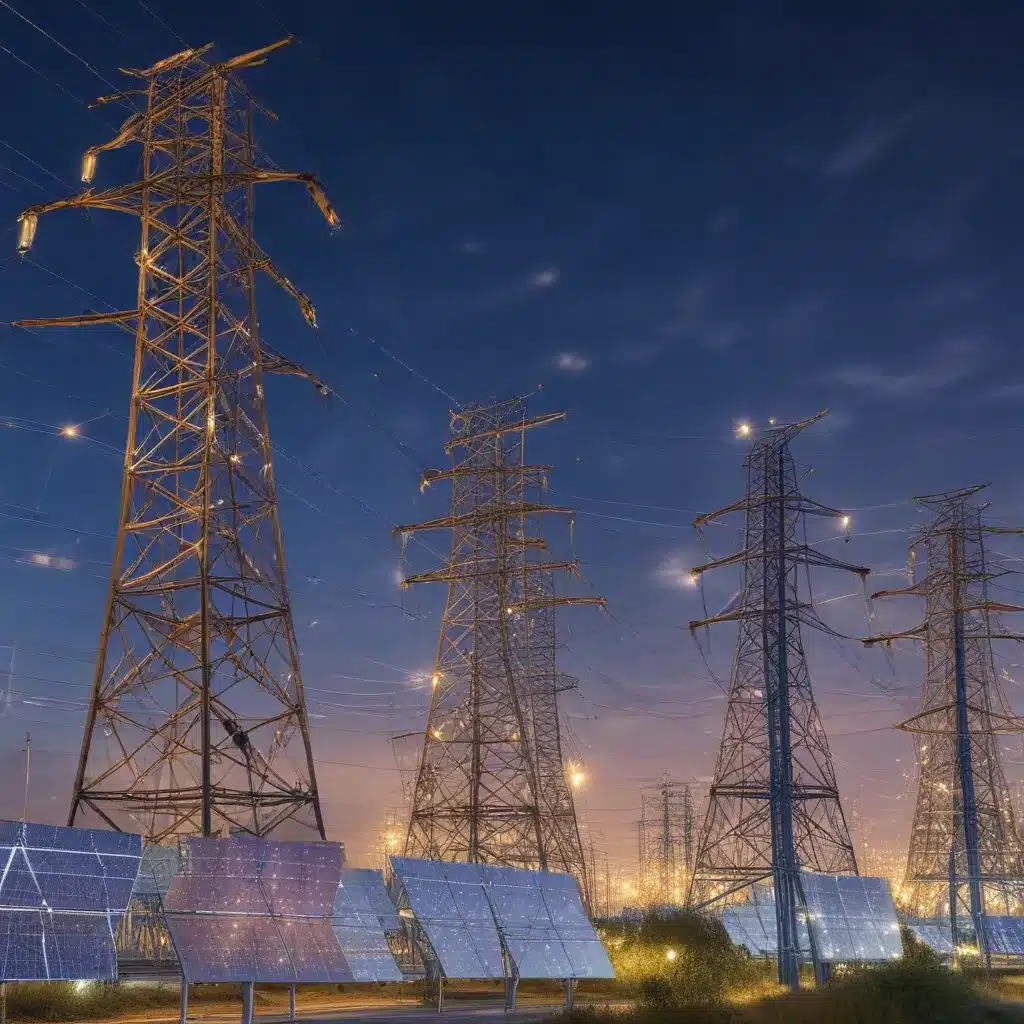
Unlocking the Power of Quantum Computing for Grid Optimization
The energy landscape is rapidly evolving, driven by the growing demand for clean, efficient, and reliable power. As renewable energy sources like wind and solar continue to gain traction, utilities are faced with the challenge of effectively integrating these intermittent resources into the grid while maintaining stability and minimizing energy losses. Enter quantum computing – a revolutionary technology that is poised to transform the way we manage and optimize energy distribution.
At the forefront of this quantum revolution is Google, a tech giant that has been at the forefront of quantum research and development. Through its quantum computing division, Google has been exploring the application of quantum algorithms to the challenge of smart grid management, with the goal of achieving unprecedented levels of efficiency and resilience.
Quantum-Assisted Grid Optimization: Reducing Energy Losses and Improving Efficiency
One of the key areas where Google’s quantum computing expertise is making a significant impact is in the field of quantum-assisted grid optimization. This innovative approach leverages the power of quantum computing to identify the most efficient routes for electricity transmission and distribution, thereby reducing energy losses and improving overall system efficiency.
The core of this technology lies in the use of quantum algorithms, such as the Quantum Approximate Optimization Algorithm (QAOA), which have been shown to outperform their classical counterparts in solving complex optimization problems. By analyzing vast amounts of data from various sources, including weather forecasts, energy demand patterns, and grid infrastructure, these quantum algorithms can identify potential bottlenecks and predict energy shortages, enabling utilities to take proactive measures to prevent power outages.
“The integration of quantum computing with classical systems can lead to improved customer service, as utilities can respond more effectively to changing energy demands and outages.”
Harnessing the Power of Quantum Computing for Renewable Energy Forecasting
In addition to optimizing grid management, Google’s quantum computing efforts have also been directed towards improving the accuracy and efficiency of renewable energy forecasting. By leveraging the principles of quantum mechanics, such as superposition and entanglement, quantum algorithms can analyze complex weather patterns and predict renewable energy output with unprecedented precision.
This capability is particularly crucial for grid management, as accurate forecasting of renewable energy generation can enable utilities to better manage their grids and reduce the strain on traditional power sources during periods of high demand. The result is a more efficient and resilient energy system, with reduced energy waste and a lower carbon footprint.
Quantum-Enhanced Battery Design and Development
The integration of quantum computing into energy storage systems is another area where Google is making significant strides. By harnessing the exponential processing power of quantum computers, researchers at Google are exploring ways to optimize battery charging and discharging cycles, as well as develop more accurate models of energy storage system degradation over time.
This quantum-enhanced approach to battery design and development has the potential to dramatically improve the performance and longevity of energy storage systems, which are critical for the integration of renewable energy sources into the grid. By enabling real-time analysis and optimization of energy supply and demand, quantum computers can help utilities manage grid stability and resilience, ensuring a more sustainable and reliable energy future.
Overcoming Challenges and Driving Adoption
While the potential benefits of quantum-assisted grid optimization are substantial, there are still significant technical challenges that must be overcome before this technology can be widely adopted. One of the primary hurdles is the development of scalable and reliable quantum computing hardware, which is an area of active research and development.
Google, along with other industry leaders, is working tirelessly to address these challenges and pave the way for the widespread integration of quantum computing into the energy sector. By investing in research and development, and collaborating with utilities and other stakeholders, Google is poised to play a pivotal role in shaping the future of smart grid management.
The Future of Quantum Computing in Energy Management
As the energy landscape continues to evolve, the integration of quantum computing into grid optimization and renewable energy forecasting will become increasingly critical. By leveraging the power of quantum algorithms, utilities can enhance the efficiency, reliability, and sustainability of their energy systems, ultimately delivering better service to their customers and reducing their environmental impact.
For Google, the pursuit of quantum-assisted grid optimization is more than just a technical challenge – it’s a strategic imperative that aligns with the company’s broader vision of a clean, efficient, and resilient energy future. As the company continues to push the boundaries of quantum computing, we can expect to see even more groundbreaking advancements in the application of this transformative technology to the energy sector.
“The potential benefits of quantum-assisted grid optimization are substantial, but significant technical challenges remain before this technology can be widely adopted.”
Conclusion: Quantum Computing’s Pivotal Role in the Energy Transition
The integration of quantum computing into energy management is a game-changing development that holds the promise of a more sustainable and efficient energy future. Through its work in quantum-assisted grid optimization, renewable energy forecasting, and quantum-enhanced battery design, Google is at the forefront of this technological revolution, paving the way for a cleaner, more reliable, and more resilient energy landscape.
As the energy sector continues to evolve, the need for innovative solutions that can optimize resource allocation, predict demand, and enhance system resilience will only grow. With its quantum computing expertise, Google is uniquely positioned to address these challenges and lead the way towards a more sustainable and prosperous energy future. By harnessing the power of quantum computing, the company is poised to transform the way we think about energy management and distribution, ultimately benefiting both consumers and the environment.












